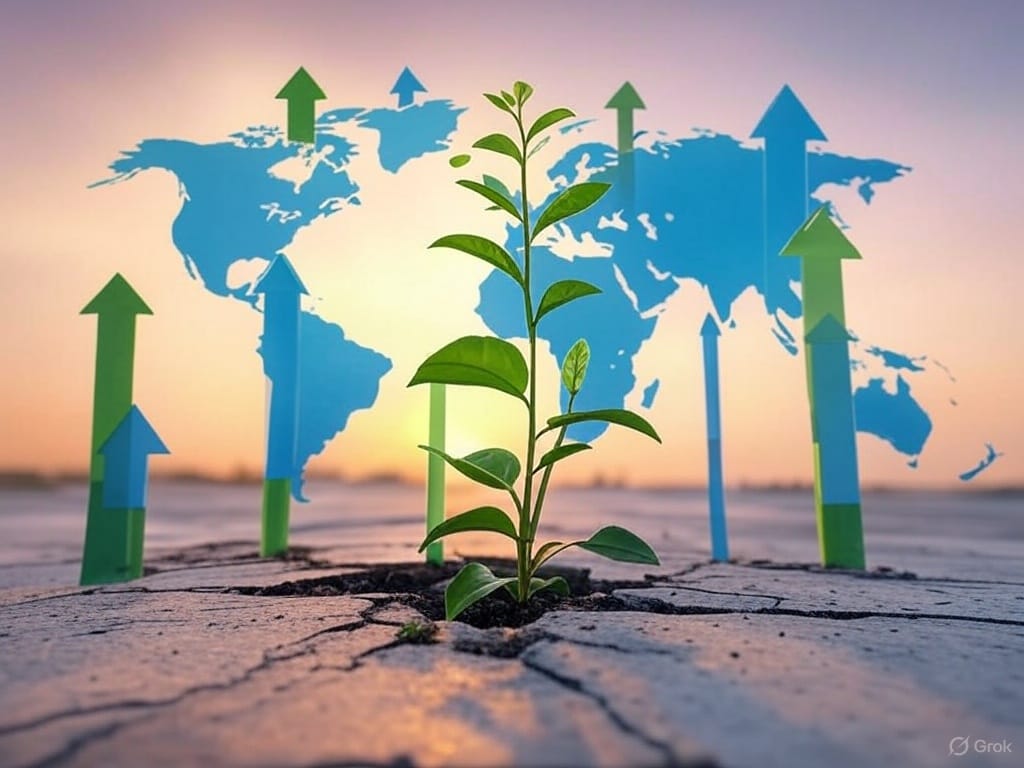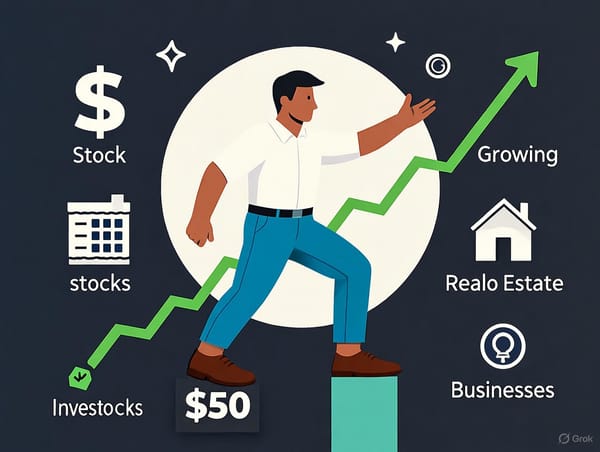Adapting to a Shifting World
In a rapidly changing world, adapting like nations such as South Korea—through upskilling, diversifying income, and staying curious—can help you thrive amidst uncertainty.

In 2024, global supply chain disruptions spiked grocery prices by 5%, and AI automation reshaped 30% of U.S. jobs. The world moves fast—geopolitical tensions, economic swings, and tech breakthroughs keep us on our toes. But here’s the good news: just as nations like Singapore and South Korea reinvented themselves against the odds, you can too. This article shares practical tools to navigate change—rethinking your career, securing your finances, and building a mindset that thrives in uncertainty. Ready to adapt? Let’s dive in.
Understand the Forces Shaping Your World
To adapt, you first need to know what’s shifting. Geopolitical changes—like trade disputes or regional conflicts—disrupt supply chains, job markets, and even your grocery bill. Economic trends, like inflation or the rise of remote work, hit closer to home. For example, the global renewable energy market is set to hit $2.15 trillion by 2025, creating millions of jobs. These aren’t just headlines—they’re signals.
Take South Korea: in the 1960s, it was poorer than many African nations. By prioritizing education and tech exports (think Samsung), it became a global leader in decades. The lesson? Stay aware of trends—like AI or green energy—and position yourself to ride the wave.
How to Stay Informed:
- Follow global news and industry blogs (e.g., Bloomberg, TechCrunch).
- Track local job market trends on platforms like LinkedIn or Indeed.
- Join online communities to hear what others are seeing.
Rethink Your Career for the Future
Clinging to one career path is risky in a world where entire industries (like coal or retail) shrink overnight. Here’s how to stay ahead.
Upskill for Tomorrow’s Jobs
Jobs in AI, sustainability, and data analysis are booming. You don’t need a degree to pivot—platforms like Coursera, Khan Academy, or YouTube offer free or low-cost courses in skills like AI ethics or renewable energy basics. For example, demand for green energy engineers is up 20% since 2023. Even 10 hours a week learning a new skill can open doors.
Overcoming Barriers: No time or money? Start with free resources or local community college programs. Even 30-minute micro-learning sessions add up.
Diversify Your Skill Set
Think like Germany during its post-war “economic miracle.” Workers didn’t just rebuild factories—they branched into automotive and chemical innovation. A teacher could learn corporate training skills, or a designer could add UX/UI to their toolkit. Diversifying doesn’t mean starting over—it’s about adding branches to your skill tree.
Embrace Flexibility
Remote work and freelancing are now mainstream. Platforms like Upwork or Fiverr let you work globally, offering a lifeline if local economies falter. Digital nomads take this further, building location-independent careers. If geopolitical unrest hits your region, flexibility is your safety net.
Secure Your Financial Future
Economic swings—like 2024’s inflation spikes—demand financial resilience. Nations like Singapore built wealth through disciplined saving; you can too.
Build a Safety Net
Aim for an emergency fund covering 3-6 months of expenses in a high-yield savings account. This isn’t just peace of mind—it’s a buffer against job loss or shortages (remember 2020’s empty shelves?).
Diversify Income and Investments
Relying on a single paycheck can leave you vulnerable in a shifting economy. Exploring side hustles, freelance opportunities, or passive income streams—like renting out a spare room—can help spread that risk. To build financial resilience, take time to learn about investing options that suit your goals and circumstances. Researching topics like stocks, bonds, or other assets can empower you to make informed decisions, much like nations such as the UAE diversified from oil to tourism and tech to strengthen their economies.
Beat Inflation
Inflation erodes your money’s value, as post-WWI Germany learned painfully. Lock in fixed-rate debts (like mortgages) when rates are low, and prioritize assets that grow—like skills or property—over luxury purchases that lose value.
Cultivate a Resilient Mindset
Adaptation starts in your head. As psychologist Carol Dweck says, a growth mindset turns challenges into opportunities. Here’s how to build one.
Learn from Setbacks
Japan rebuilt after WWII; Iceland bounced back from 2008’s financial crash. A layoff or failed project isn’t failure—it’s feedback. Ask: What worked? What’s next? Reframe setbacks as stepping stones.
Stay Curious and Connected
Curiosity keeps you nimble. Read widely—news, blogs, even X posts—to spot trends early. Network with diverse people; a single conversation can spark a career pivot. Singapore’s global trade openness fueled its rise—your openness can too.
Balance Action and Patience
Don’t panic at every headline, but don’t freeze either. Take small, decisive steps—like signing up for a free coding course—while staying patient for long-term results.
Your Next Step
The world won’t stop shifting, but you can move with it. Like nations that turned crises into opportunities, you can build a life that bends without breaking. Start today: spend 10 minutes researching one in-demand skill in your field, tweak your budget to save $20 a week, or jot down where you want to be in 2026. Small steps now lead to big wins later. The future belongs to those who adapt—why not you?





